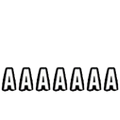113
you are viewing a single comment's thread
view the rest of the comments
view the rest of the comments
this post was submitted on 01 Oct 2024
113 points (100.0% liked)
Movies & TV
22887 readers
188 users here now
Rules for Movies & TV Discussion
-
Any discussion of Disney properties should contain a (cw: imperialism) tag. If your post isn't tagged appropriately it will be removed.
-
Anti-Bong Joon-ho trolling will result in an immediate ban from c/movies and submitted to the site administrators for review.
-
On Star Trek Sunday only posts discussing how we might achieve space communism are permitted. Non-Star Trek related content will be removed and you will be temporarily banned until the following Sunday.
Here's a list of tons of leftist movies.
founded 4 years ago
MODERATORS



People's focus on "realism" as a prerequisite for any artistic display is the absolute death of art.
It drives me up a wall.
I wish we'd see more embracing of surrealism, hyper-realism, and of the mind bending bullshit that film directors can do with all kinds of in-camera tricks.
I've long had this vision of the battle between Fingolfin and Morgoth, and how I see it played out in my head is using in-camera forced perspective BS so that whenever Morgoth is the active fighter Morgoth looks inhumanly enormous, taller than the mountains, ready to crush Fingolfin with his boot. But whenever he actually attacks he is shrunken by camera work and perspective to just be more than human, a giant but not impossibly powerful. And when Fingolfin parries or dodges, and especially when Fingolfin manages to land one of Morgoth's seven wounds, Morgoth is brought down to Mortal scale, a big man, but only a big man. But between these moments he scales back up to godly, mountainous, tyrannical size and power.
And this shifting of perspective would play out through the whole fight, and as Morgoth accrued more and more wounds the scale of him would be brought down and down, til he was almost of a height with Fingolfin. And when Fingolfin lands his final blow on Morgoths heel and Morgoth strikes Fingolfin down and crushes his neck Morgoth will not look so large. In fact as he limps back to the gates of his fortress, alone, with no one to aid him, bandage him, celebrate him, he will look very small indeed.
And this shifting of perspective would be what tells the story, more than the actual play of hammer and sword. Melkor, Morgoth, is the most powerful being in all of Arda. When a mere Elf comes to challenge him at the gates of his home, for the sake of face, he must answer. But he doesn't crush the elf with a single blow of his hammer. Morgoth, the enemy of the world, struggles. This lesser being forces the great enemy to try. The being that once strode about in the aspect of a burning mountain has been reduced to dueling with a mere elf. Not Tulkas or Orome, not Ungoliant or a Balrog or a Maia. Just an elf. And every time Fingolfin survives a blow, every time Morgoth is cut, he becomes that much smaller. The raw power of the great adversary flows out of him, he deflates. He becomes less. In the end he defeats Fingolfin. But it is not an easy defeat, an effortless defeat. He does not mock the weakness of mere Elves. Instead Morgoth is permanently disabled, lamed in the foot and cut by wounds that never heal. The great enemy of all beings has been reduced. He is no longer a destroyer of continents who overthrows mountains at a glance. Now is power is only at a human scale, comprehensible to men and elves. And showing that lack of stature, that loss of scale, is something you could do with camera tricks far better than any straight fight choreography could ever convey.
More creative that whatever CGI floaty bullshit they'd do